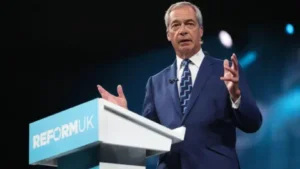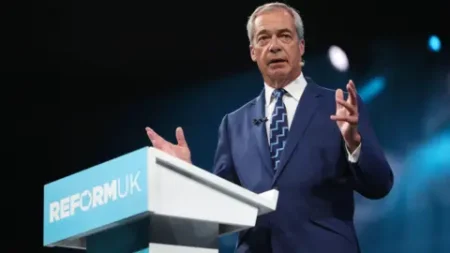In a recent development, Home Office Minister Jess Phillips has made an official apology to Members of Parliament (MPs) regarding the delay in the publication of a pivotal report on grooming gangs. This situation underlines the ongoing discussions and concerns surrounding group-based child sexual abuse, a matter that has sparked significant debate and scrutiny across the UK.
The backdrop to this delay is a “rapid” three-month audit commissioned in January, which tasked Baroness Louise Casey with assessing the data and evidence surrounding the extent and nature of group-based child sexual abuse in the UK. During the sessions in the House of Commons, Conservative MP Katie Lam expressed concerns that Baroness Casey’s review, alongside a proposed framework for inquiries related to grooming gangs, was expected to be published in May. She sought clarity on the timeline for the report’s release.
In her response, Phillips articulated her regret over the prolonged wait, specifically mentioning a “month’s wait,” while pointedly indicating her own frustrations by stating, “I’ve waited 14 years.” This comment referenced the extensive period the Conservative Party has been in government, highlighting a broader context of time during which action on this pressing issue has been anticipated.
The Minister clarified that the extension request made by Baroness Casey has resulted in the delay, assuring her fellow MPs that the report is expected to be completed “very shortly.” Phillips continued to emphasize that once the report is available, the government would present its responses and proposals informed by the findings contained within the report.
In the earlier part of the year, the government had been met with calls for a national inquiry into grooming gangs but dismissed these, asserting that such issues had been previously examined in a thorough inquiry led by Professor Alexis Jay, which had spanned over seven years. Instead, Home Secretary Yvette Cooper initiated the rapid audit under Baroness Casey, aiming to aggregate data that would clearly depict the complexity and scope of group-based child sexual abuse. Furthermore, an initial fund of £5 million was allocated for victim-centered inquiries at a local level, specifically targeting Oldham and several other yet-to-be-named locations.
In the context of pressing local inquiries, Phillips had previously indicated in the House of Commons that additional inquiries beyond the initial five could be forthcoming, contingent on the insights gleaned from Casey’s audit once it is released. The urgency for a comprehensive national inquiry continues, as the governing party underscores the necessity for a mechanism that has the authority to compel testimony and evidence, asserting that some regions might not be inclined to perform their own independent assessments.
Lastly, the dynamics surrounding this issue present a multifaceted challenge for lawmakers, as evidenced by Phillips’s commitment to following up on any shortcomings or issues that Baroness Casey might highlight regarding local authorities. The inquiry thus underscores the critical need not only for oversight but also for a more unified national approach to addressing and responding to the serious implications of grooming gangs within the UK, ensuring victims are supported and justice is pursued effectively.
In conclusion, the expressed apologies and discussions around the delay in the report on grooming gangs illustrate the complexities and sensitivities surrounding child sexual abuse in the UK. As the government prepares for the forthcoming report, the implications of its contents could steer future policy and inquiry efforts, aiming to foster a safer and more vigilant societal environment against these heinous crimes.











